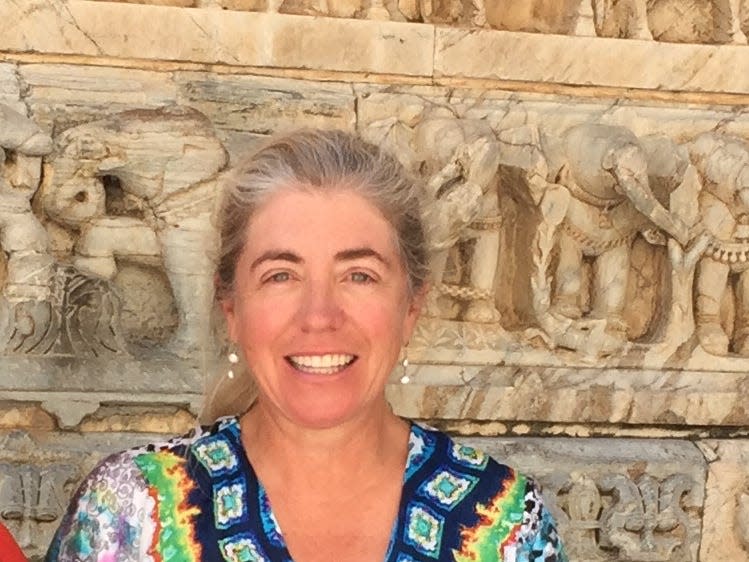Pain is optional
Life if full of ups and downs, joys and sorrows. Do you ever experience mental obstacles or unhelpful habits that keep you from living your best life? Do you cling to pleasure and dodge anything painful? While suffering is an inherent aspect of life, what most of us do not fully realize is that most suffering is a choice. Of course, there is the “suffering of suffering” such as famine, war, abuse, neglect, severe illness, and chronic pain, to name a few. But have you ever heard the Buddhist proverb “Pain is inevitable, suffering is optional”?

In both Hinduism and Buddhism there are blocks on the path to enlightenment. Both religions speak of the kleshas, and there is some overlap. Both religions think of the kleshas as mental afflictions, obstacles, negative mental states, poison, and distress. Afflictions are things that cause us pain, suffering, torment, and misery. These “afflictions” distort our minds and our perceptions and affect the way we think, act, and feel. Think of a klesha as something that arises when your buttons get pushed and may cause you to react. These afflictions are often responsible for making our lives harder than they need to be. In Yoga Sutras of Patanjali, the five Kleshas or ‘afflictions’ include: Avidya (ignorance); Asmita (egoism); Raga (attachment); Dvesa (aversion or hatred); and Abinivesaha (clinging to life and fear of death). Some of the kleshas afflict us daily at a subtle level, yet others can be overwhelming and cause great pain. What all these ‘poisons’ do have in common, however, is that they keep us from being truly present in the now, having a sense of freedom, and living a joyful life.
Avidya (ignorance) is the klesha that is the root cause of the others. Some texts describe it as the trunk of the tree of suffering with all other kleshas branching off. Avidya gives birth to the other kleshas. Each of us perceives what the world is like according to our past experiences, expectations, beliefs, and upbringing. Each of us has created our own realities which can be very different from another’s. When we are afflicted by avidya, we believe that all our thoughts are true, that our perceptions are reality, and what we individually believe is right. Yoga’s emphasis is on avidya, or ignorance, as the chief affliction we suffer. Overcome avidya and all other troubles go away.
Another affliction or klesha is asmita (ego). Few people acknowledge or even admit it, but we all have an ego. Next time you find yourself labelling or being defensive (“Me? I don’t have an ego”), take a deep breath, settle into your seat, and try reflection techniques. Be the witness to your own thought process objectively. Awareness is the first step.
The raga klesha is the attachment to pleasure. Whether we are chasing desires, material objects, the perfect house, states of mind, attachments--the list is endless. Feeling attached to a pleasurable experience can happen instantaneously, like the taste of chocolate, oatmeal cookies, the smell of coffee, or the sensation of a drink. These things cause a release of chemicals that stimulate the brain to want more, and we can become attached to it. In terms of relationships, we can become attached or dependent upon other people if they seem to give us some form of safety or provide affection. As for material possessions, we can clearly see how easy it is to become attached to a piece of technology or a social media platform. While these pleasurable experiences may feel good initially, most of them will create some form of suffering if we allow them to because once that pleasurable experience is over, we often feel sad about it, and wish for that pleasure to return. Moderation, balance, even-mindedness, and mindfulness are the keys to keep desires in check.
Dvesha is the aversion to pain.
Dveshas are strong dislikes or avoidance. We do this because we do not like stepping out of our comfort zone, but we fail to notice the tremendous growth opportunity that can bring. The best way to set aside aversion is challenging yourself to face uncomfortable situations in life rather than avoiding them.
Abhinivesha is fear of death.
Clinging to life or fearing death reduces your focus and inhibits with your ability to experience this life fully. Live each day of your life as if it were your last, and you can overcome this fear of death. Start the day with a priority list and complete things that are important. In eastern cultures death is not a taboo subject as it is here in the west. Both Hindu and Buddhist texts speak to the importance of knowing that you are indeed not your body but something far greater and more profound, and both regularly remind us of the soul, the inner light, the self.
Being aware of the kleshas (ignorance, ego, attachment to pleasure, avoidance of pain, and fear of death) may help you end your suffering. I find the serenity prayer a powerful tool in developing equanimity: “God, grant me the serenity to accept the things I cannot change, the courage to change the things I can, and the wisdom to know the difference.” Remember to be easy on yourself and gentle towards others. Ignorance cannot survive in the light of consciousness.
Feel free to share your thoughts with me: ashton@ashtoncannon.com.
Ashton Graham is an educator, book publisher, photographer, cowgirl and yoga teacher. She is currently studying to become a yoga therapist and lives on a ranch in West Texas. Visit www.ashtoncannon.com to learn more.
Read more Maintaining Balance:
This article originally appeared on Las Cruces Sun-News: Pain is optional

